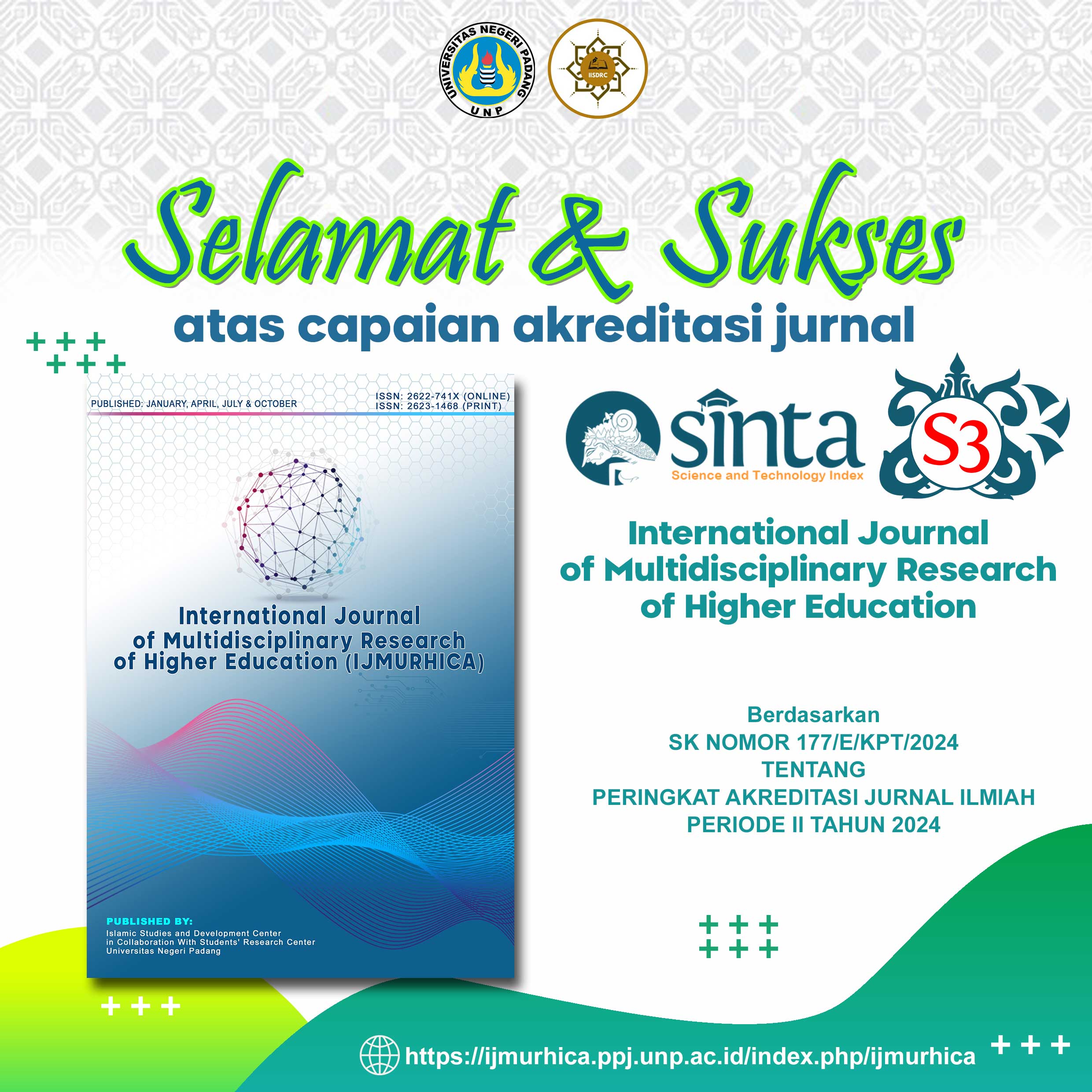Environmental Awareness Education Program for Students in Realizing SDGs 12
DOI:
https://doi.org/10.24036/ijmurhica.v8i4.414Keywords:
Government collaboration, plastic waste management, environmental awareness, youth generationAbstract
Plastic waste in school environments is not just a matter of cleanliness, but also a reflection of how we educate children to care for and take responsibility for the environment from an early age. In one of Indonesia's major urban areas, schools play an important role as learning spaces and places for instilling sustainable living values. Through the Adiwiyata program and the Pancasila Student Profile Strengthening Project, children are encouraged to learn while taking action to manage waste, maintain cleanliness, and understand the impact of their choices on the environment. This study is important to assess how far these efforts have progressed, what has been successful, and what challenges still need to be addressed collectively. This research aims to examine how cross-sector collaboration between the government, schools, communities, businesses, and the media plays a role in plastic waste management at one of Indonesia's senior high schools. Using a qualitative approach and case studies, data was collected through interviews with the Tangerang Selatan Environmental Agency (2 individuals), the Community (2 individuals), students (20 individuals), and teachers (3 individuals). The results of the study show that the active involvement of all parties not only fosters an environmental culture in schools but also provides students with opportunities to act as agents of change. They learn to sort, process, and creatively address environmental issues. However, challenges such as insufficient teacher training, uneven distribution of roles among institutions, and weak integration of programs into the curriculum still need to be addressed. The implications of these findings suggest that consistent active involvement and commitment from all parties can lead to improved plastic waste management in schools, supported by adequate policies and teacher training in the teaching and learning process.
Downloads
Downloads
Published
How to Cite
Issue
Section
License
Copyright (c) 2025 Euis Septiaty, Yusuf Fadli, Toddy Aditya, Ahmad Chumaedy, Adie Dwiyanto Nurlukman

This work is licensed under a Creative Commons Attribution-ShareAlike 4.0 International License.






